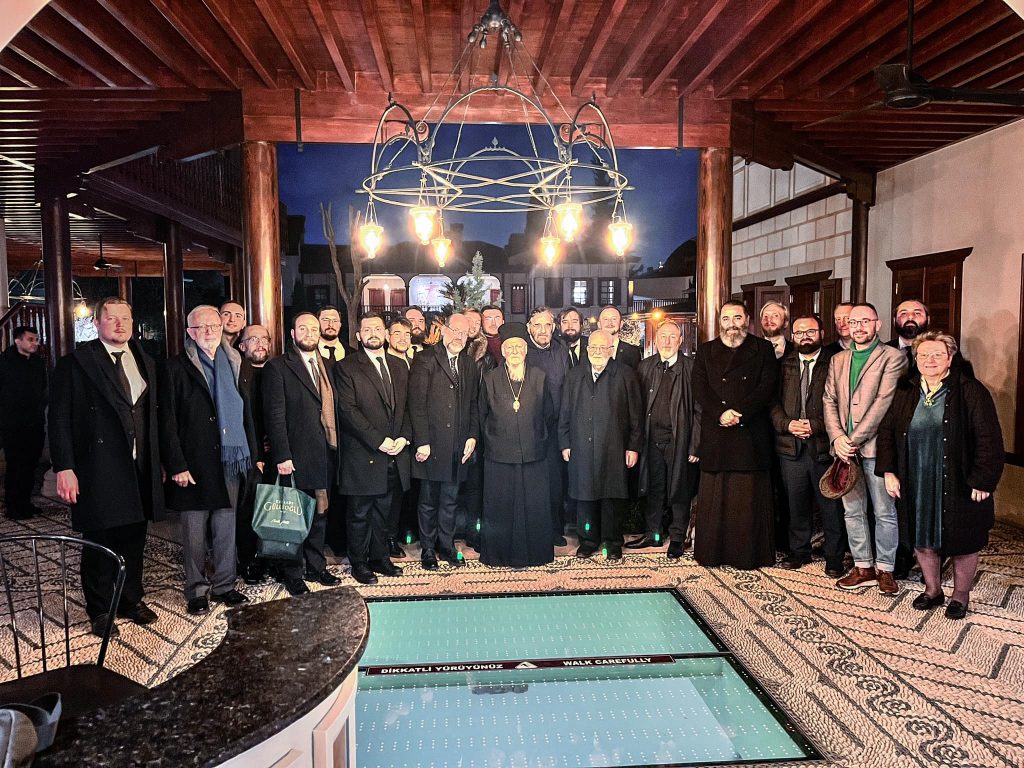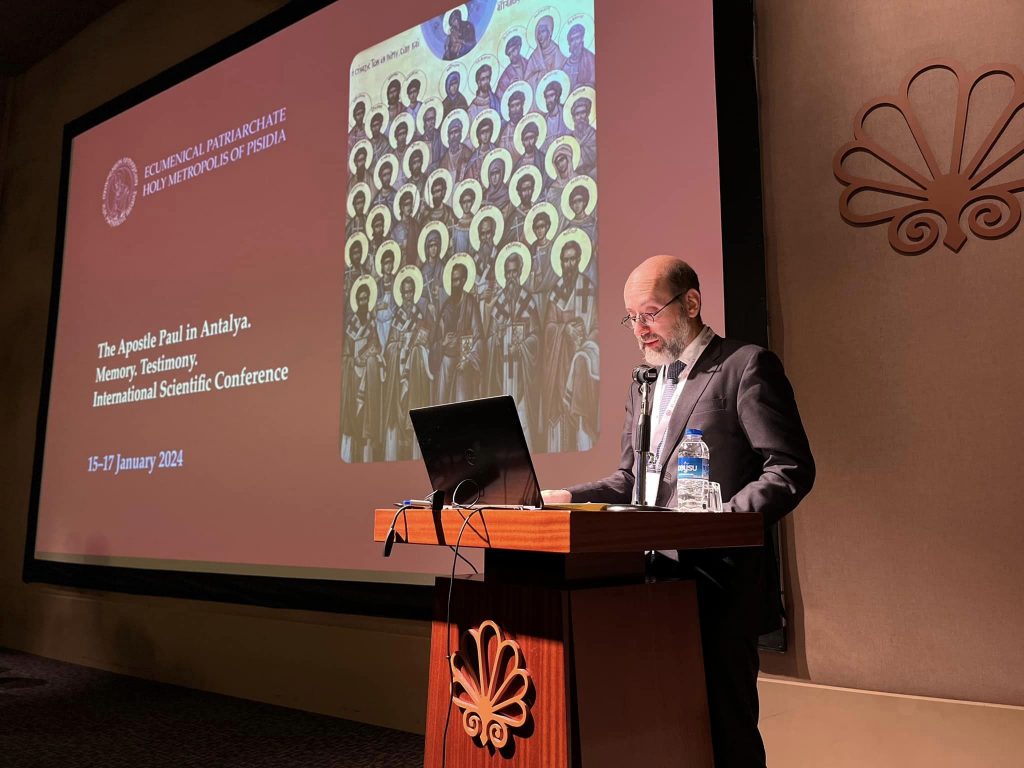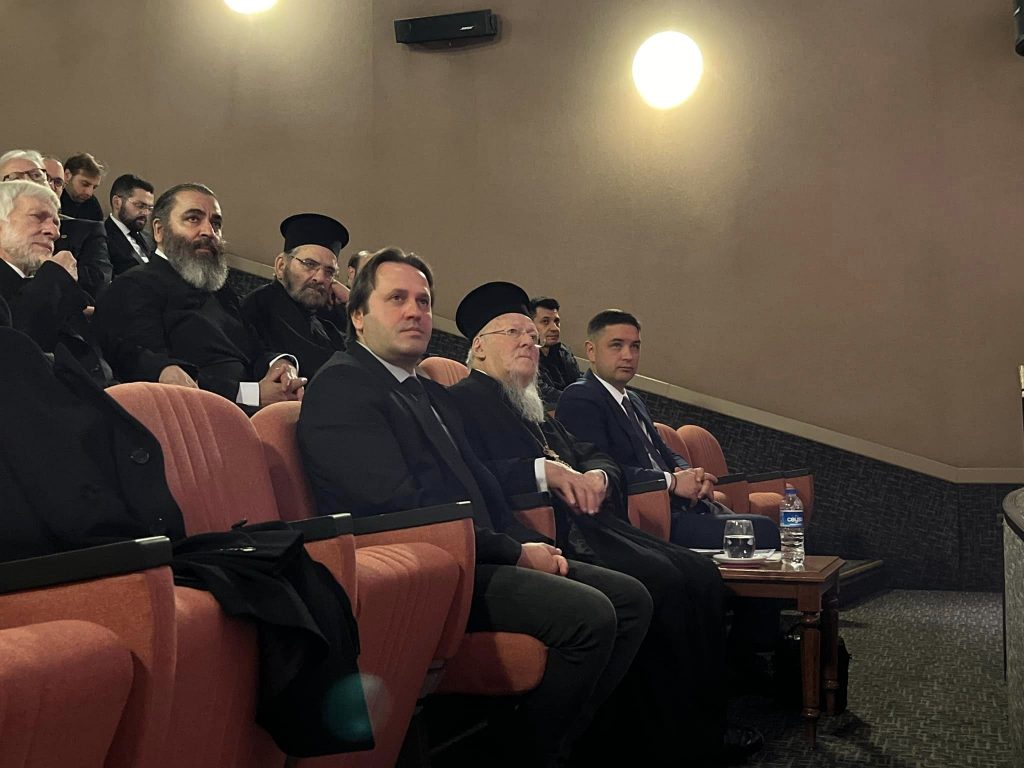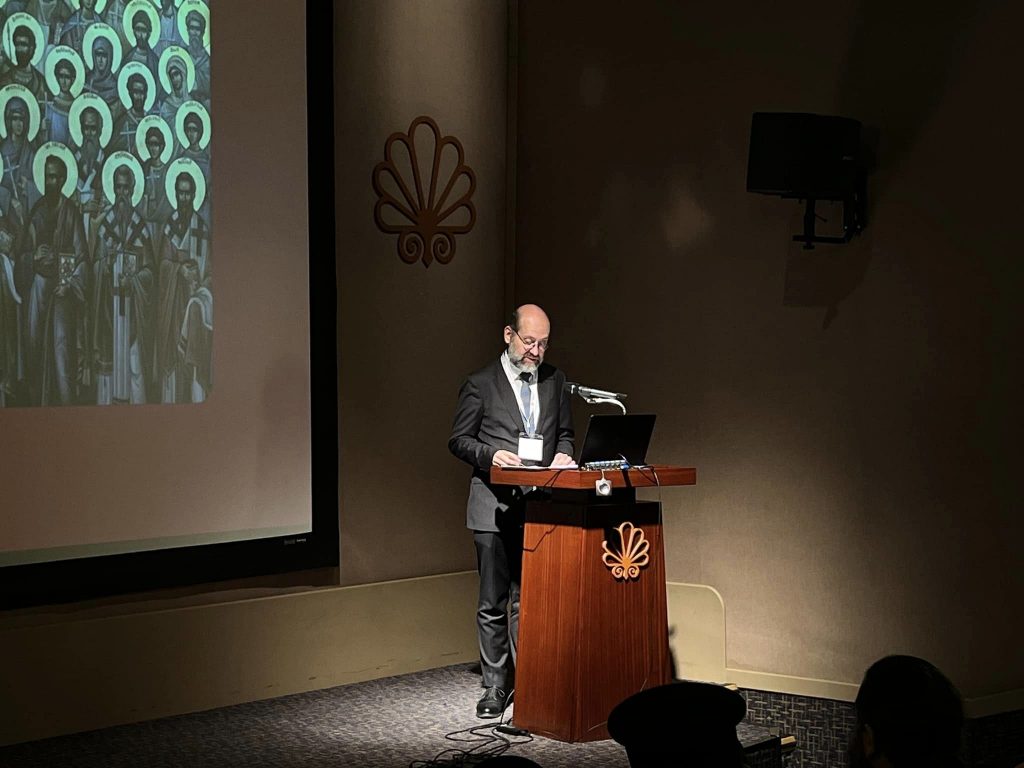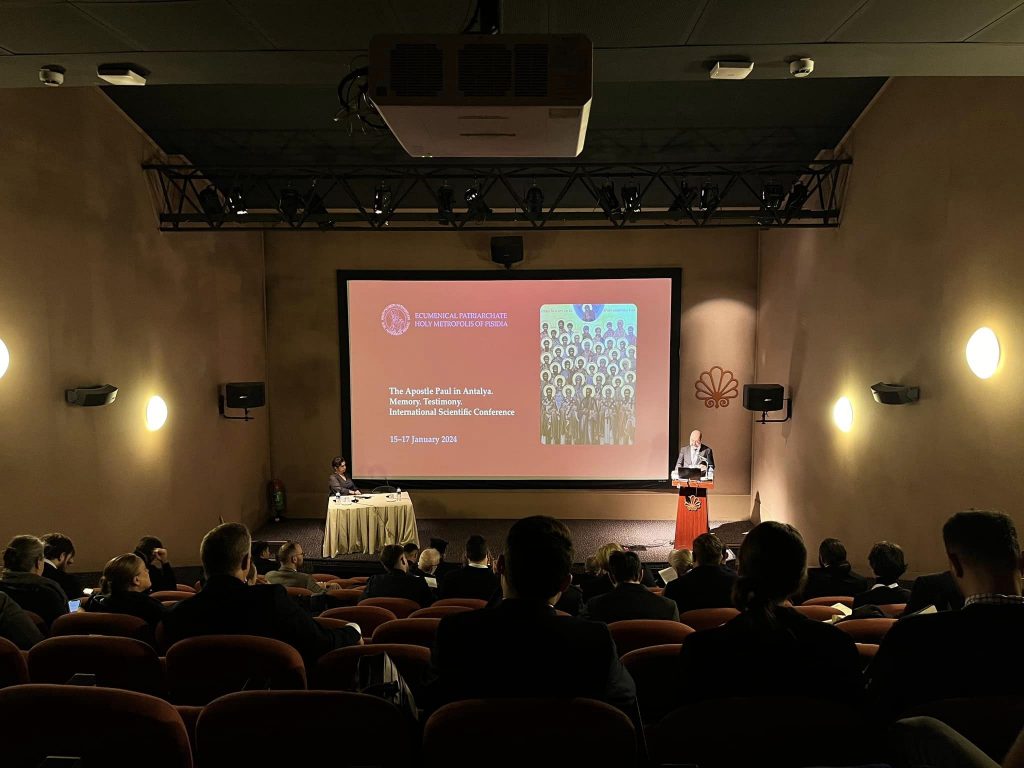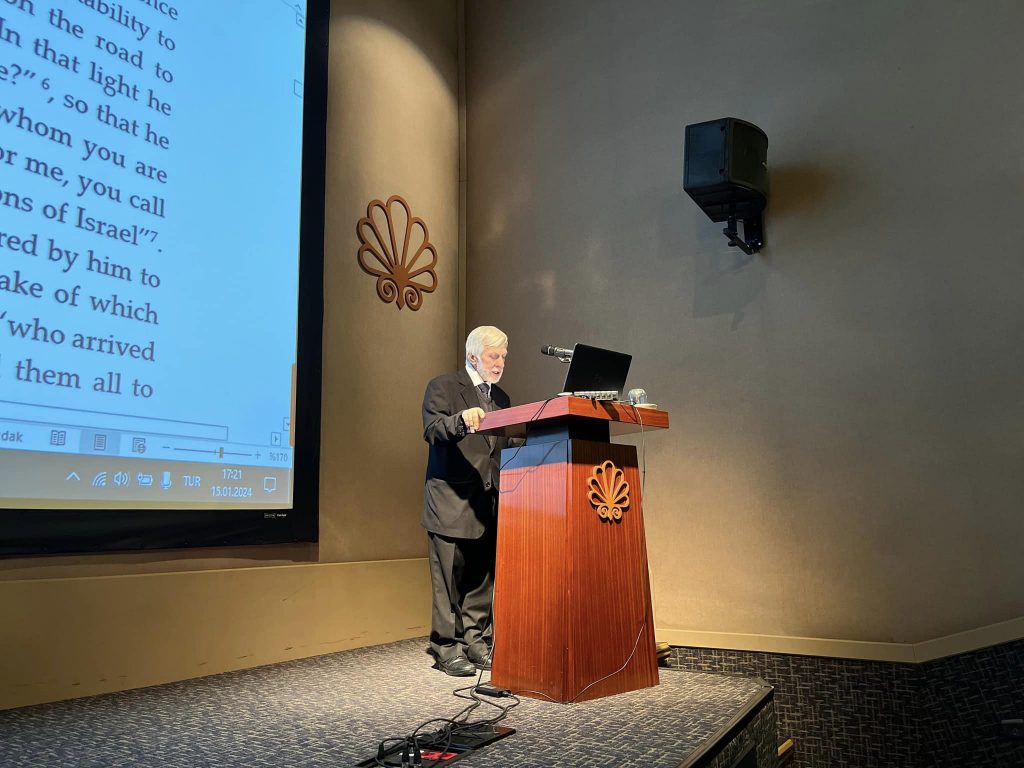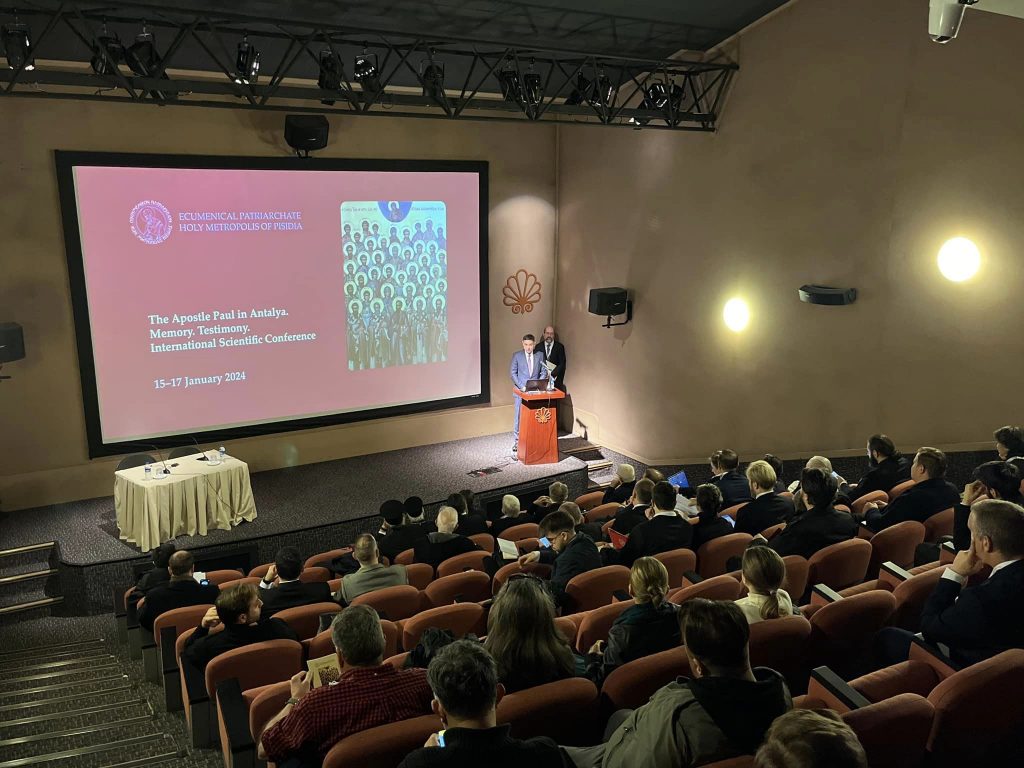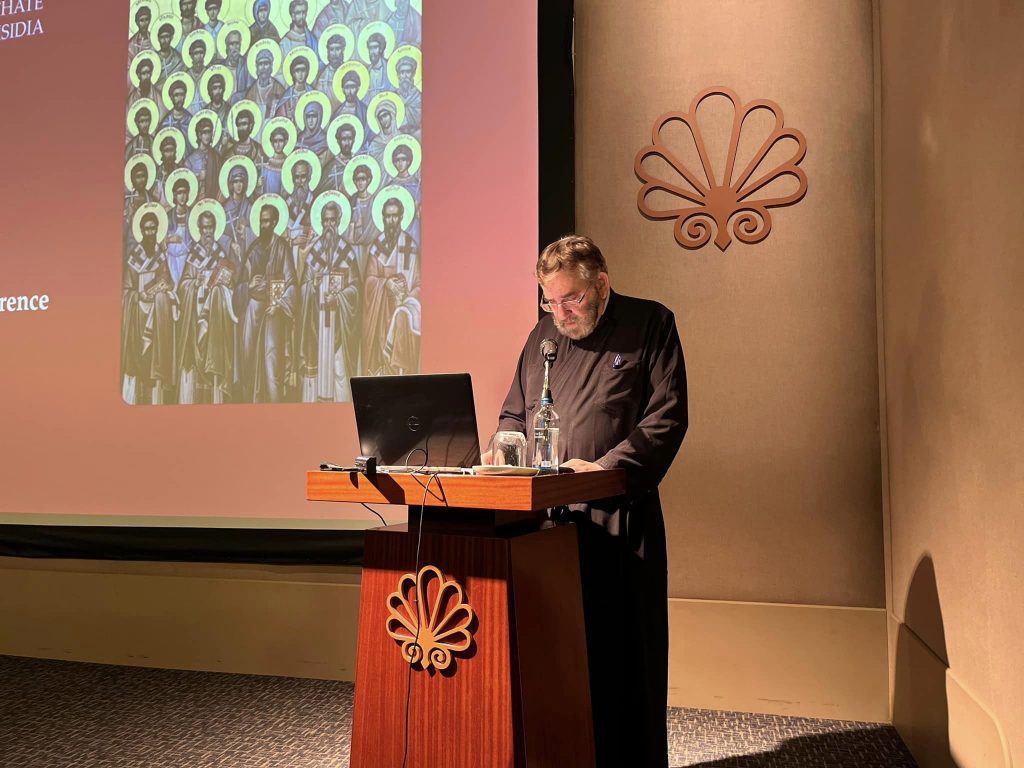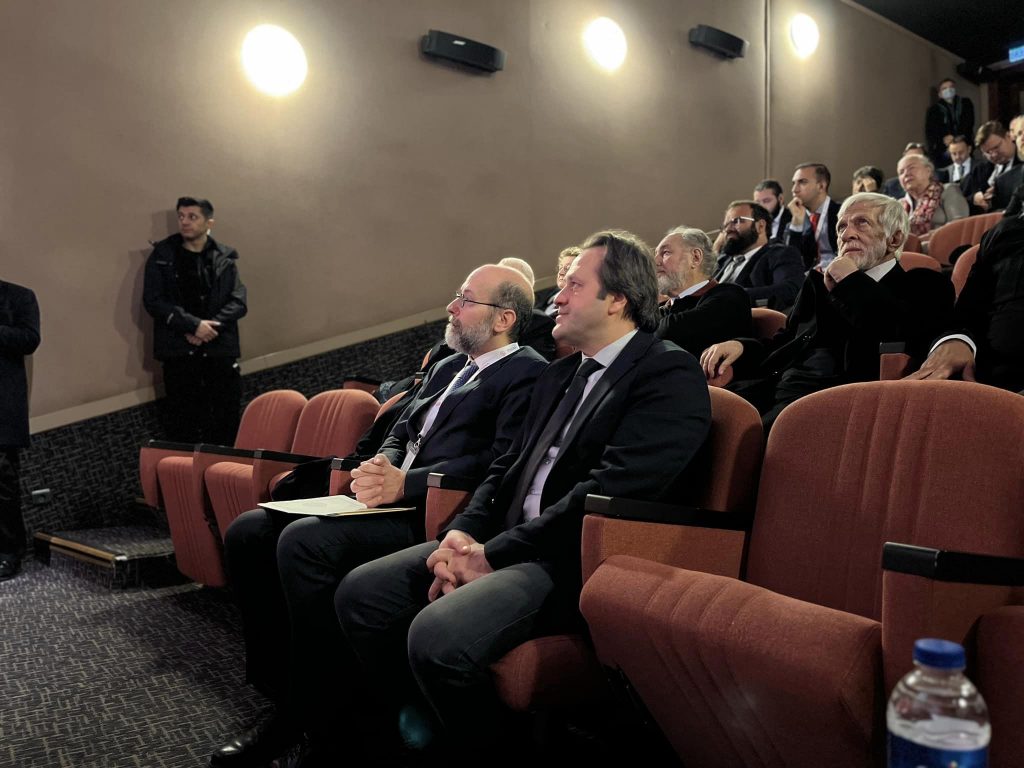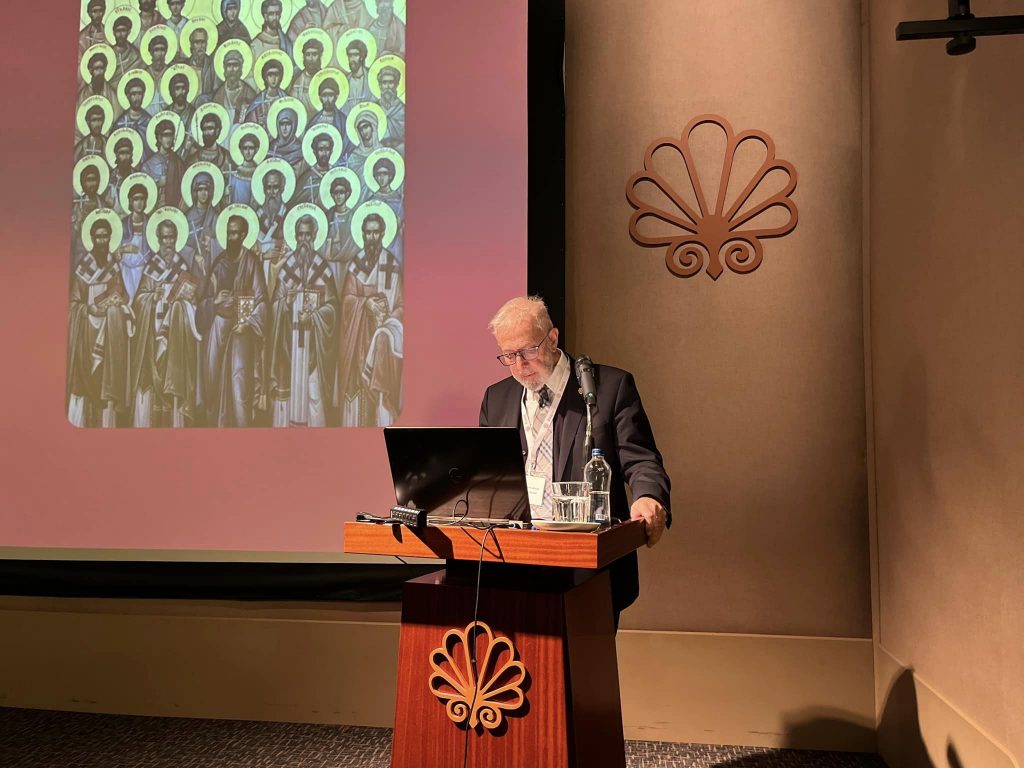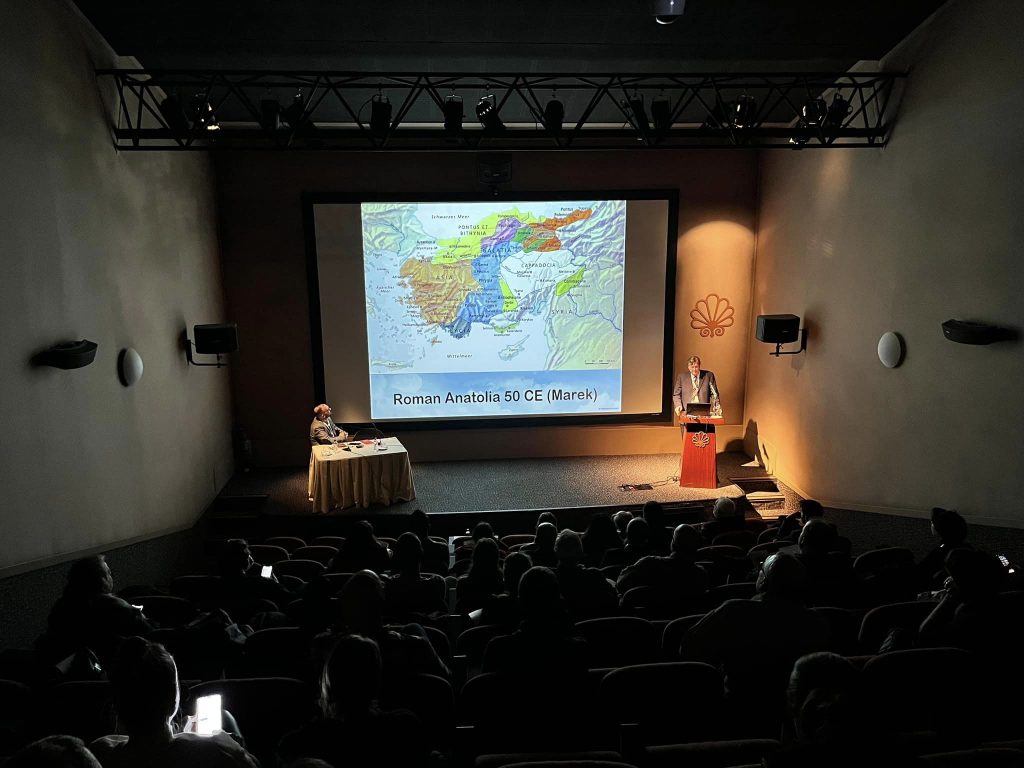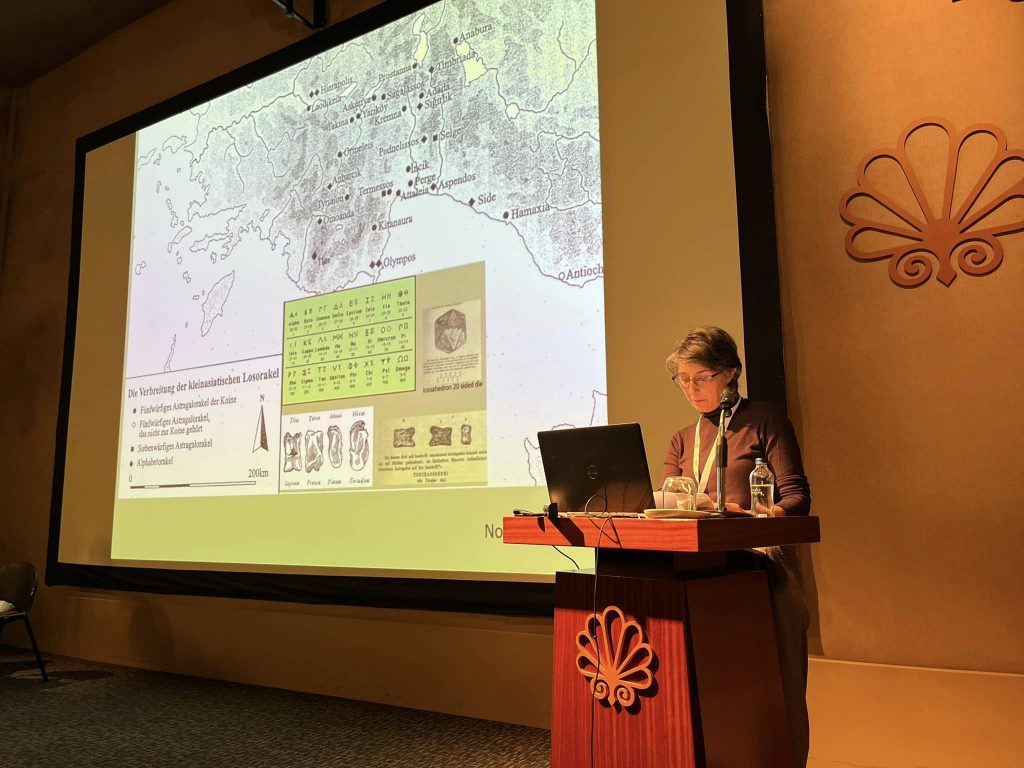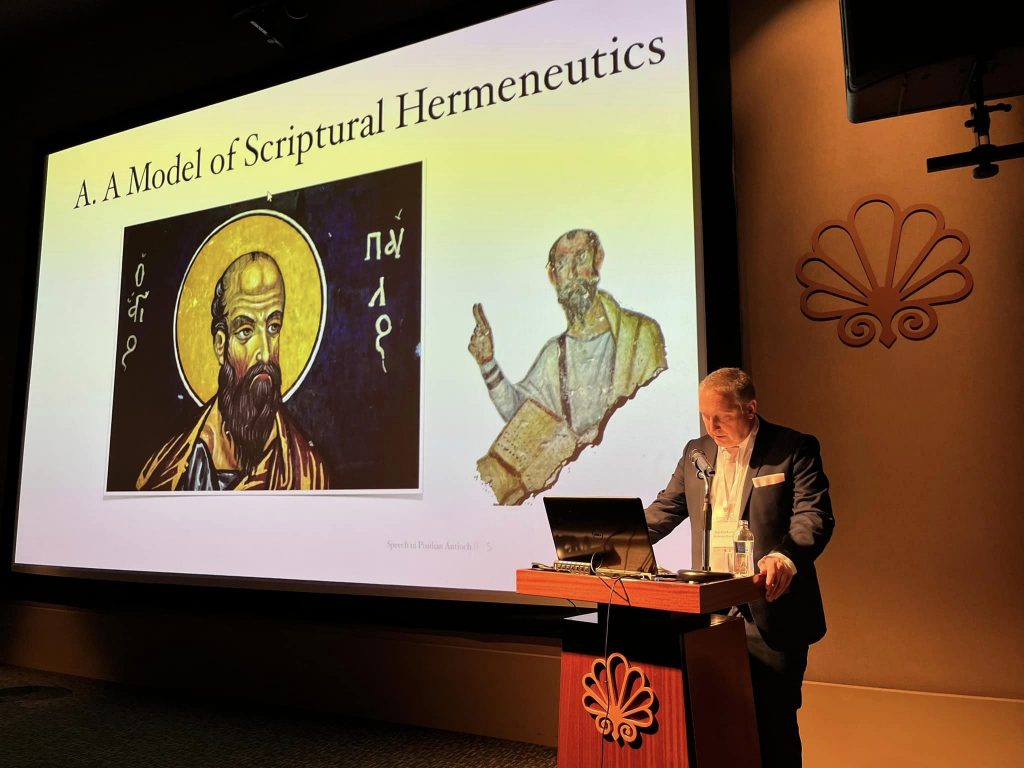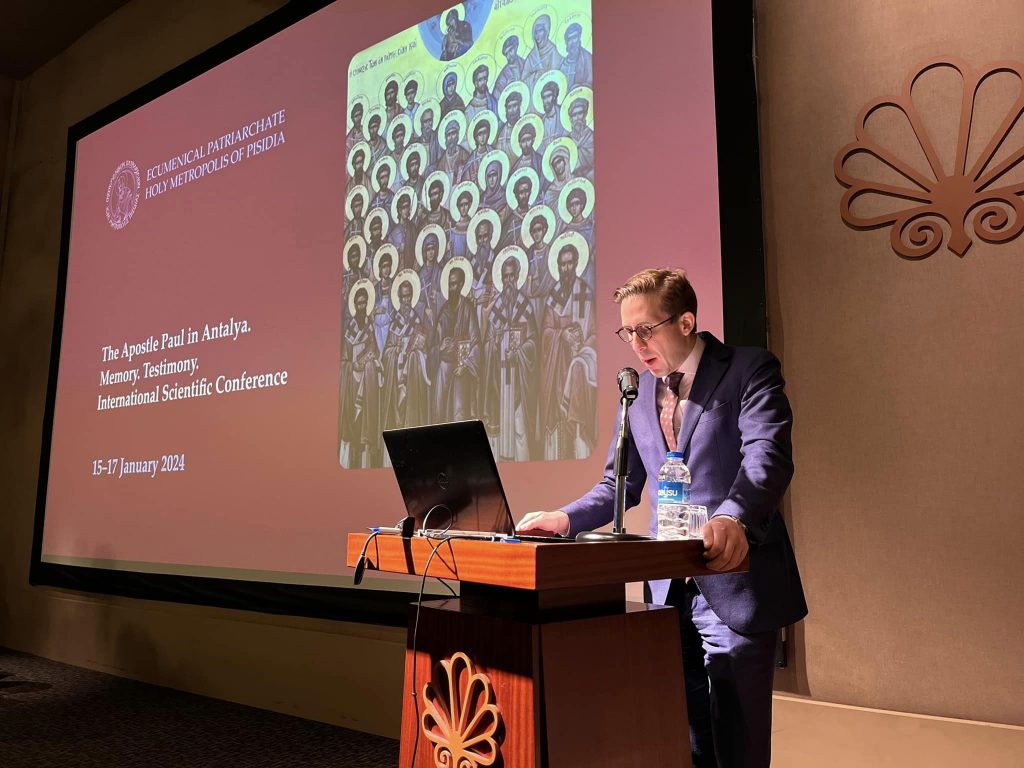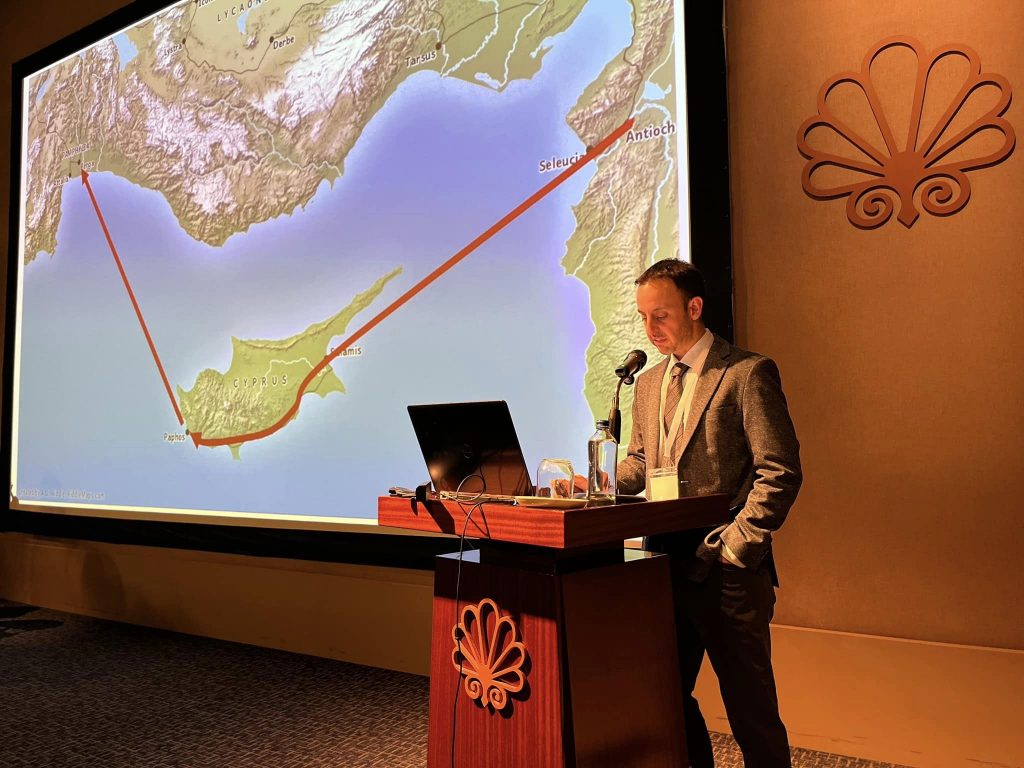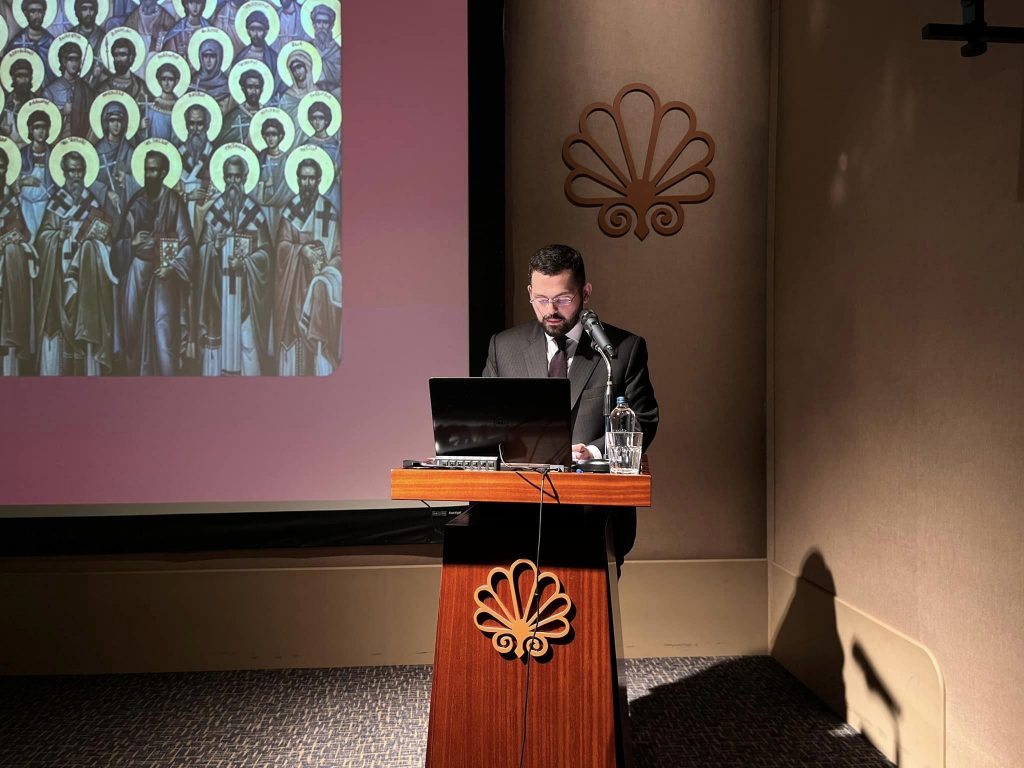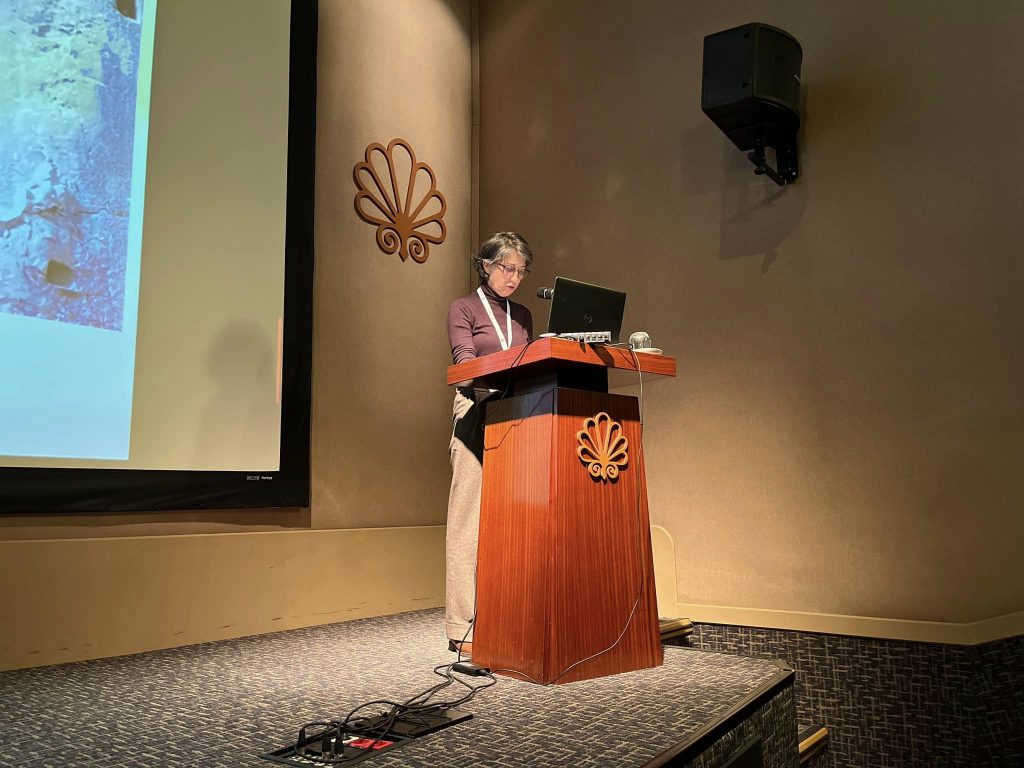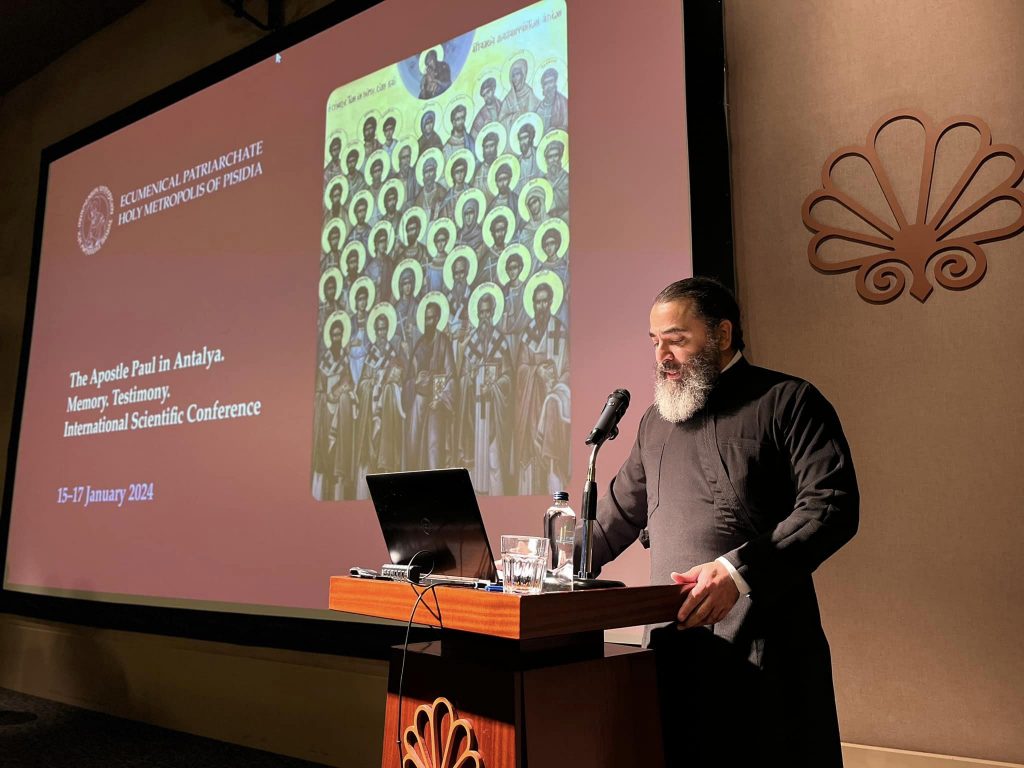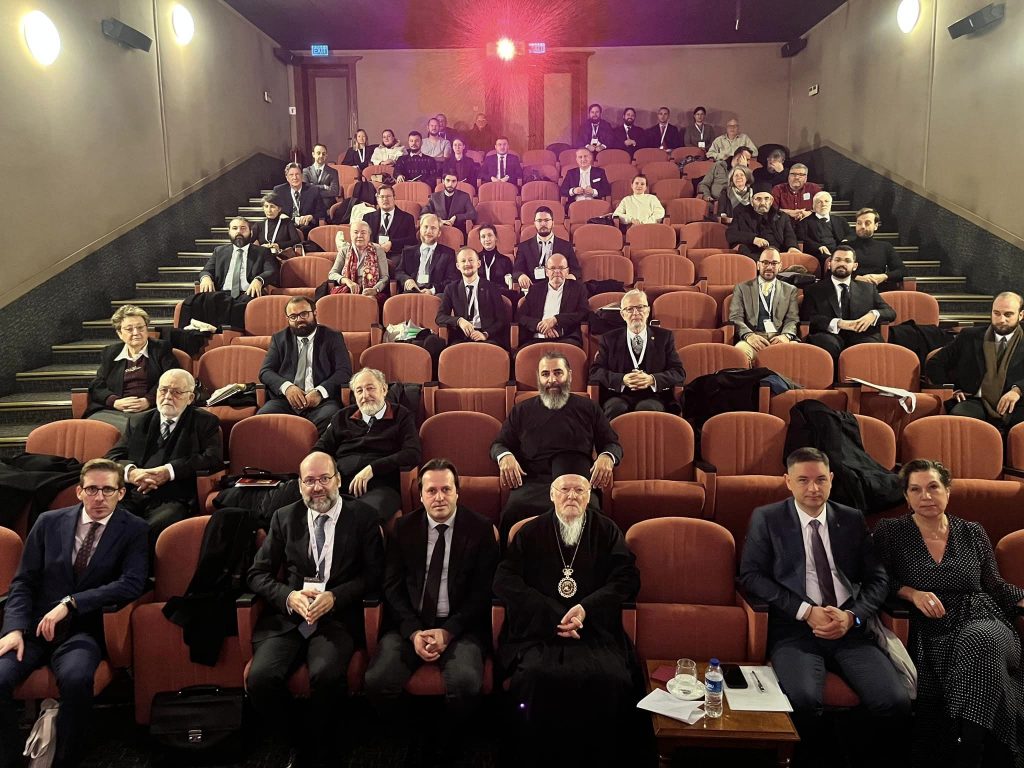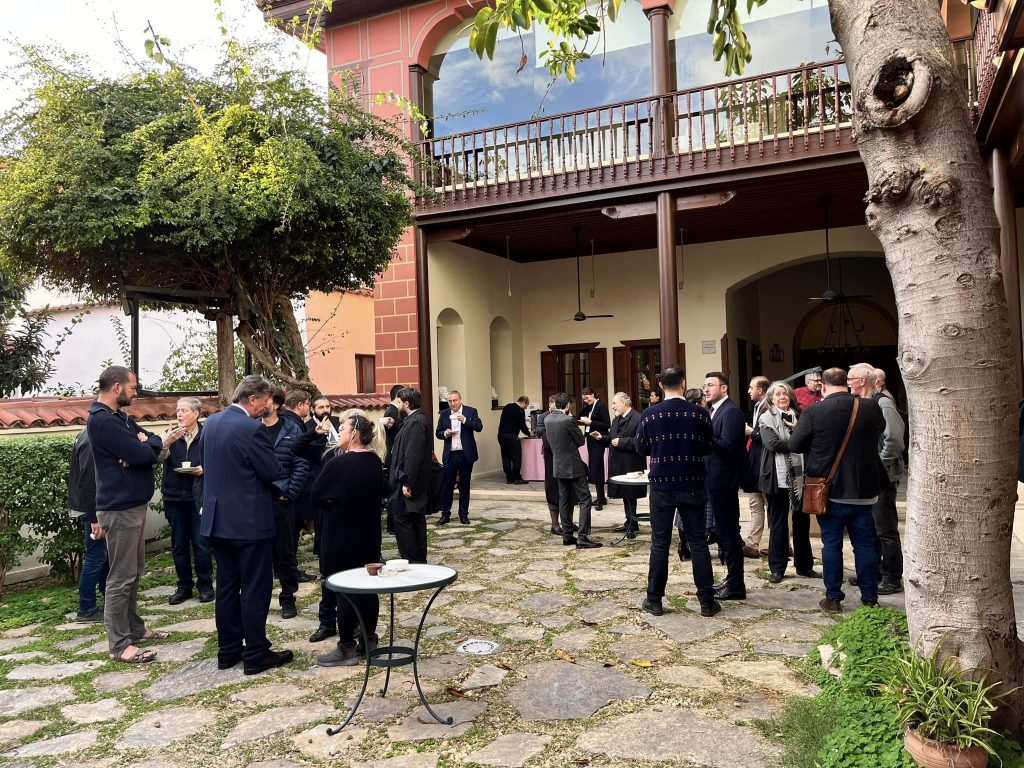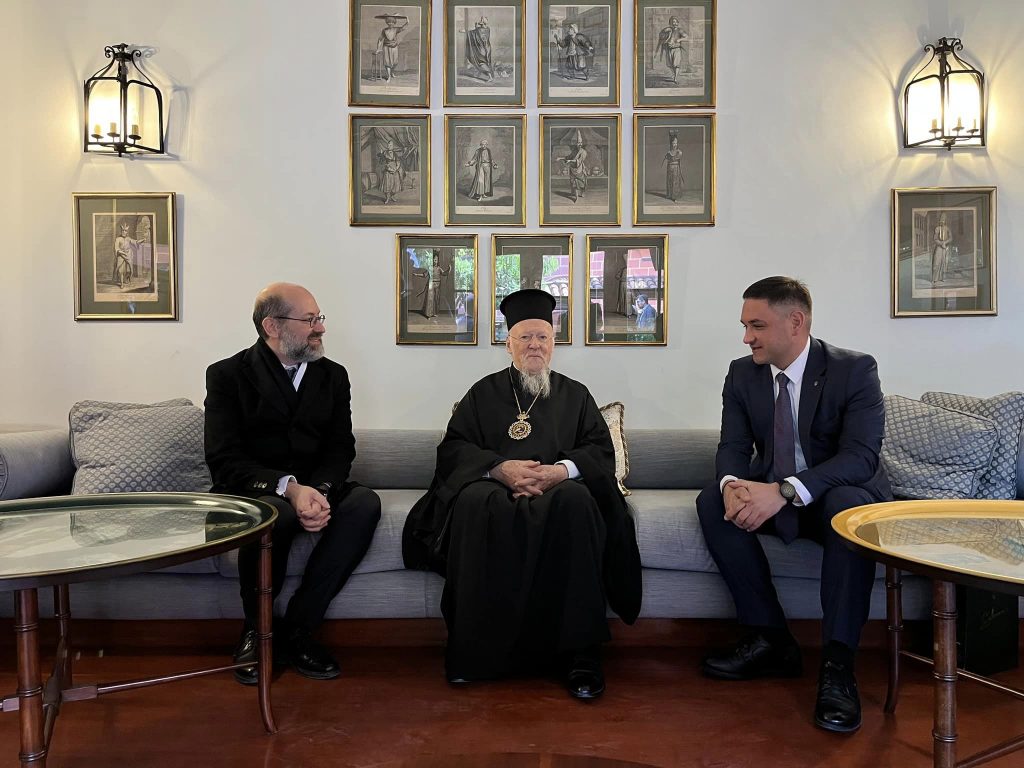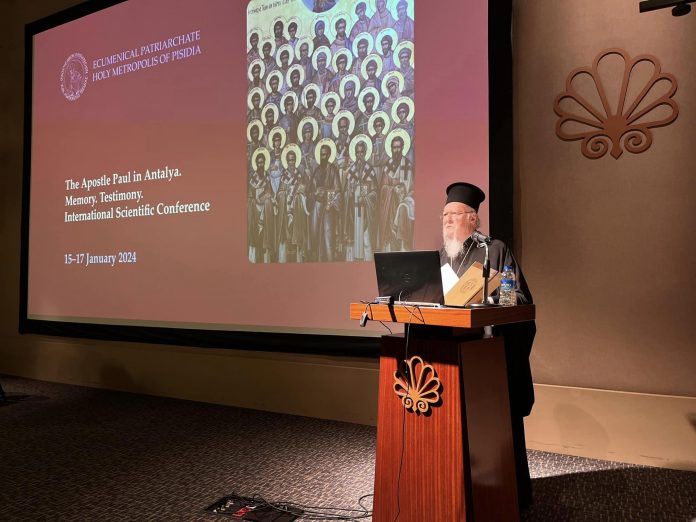Η Α.Θ. Παναγιότης ο Οικουμενικός Πατριάρχης κ.κ. Βαρθολομαίος, τη Δευτέρα, 15 Ιανουαρίου 2024, κήρυξε την έναρξη του Διεθνούς Επιστημονικού Συνεδρίου “Ο Απόστολος Παύλος στην Αττάλεια. Μνήμη. Μαρτυρία”, το οποίο τελεί υπό την αιγίδα Του και διοργανώνει η Ιερά Μητρόπολη Πισιδίας στην πόλη της Ατταλείας.
Ο Παναγιώτατος στην ομιλία του αναφέρθηκε στην οικουμενικότητα του Ευαγγελίου του Χριστού και στη σημασία του κηρύγματος του Αποστόλου Παύλου, στο πλαίσιο των οποίων το Οικουμενικό Πατριαρχείο ανέλαβε, στην εποχή μας, σειρά πρωτοβουλιών για την προώθηση των οικουμενικών σχέσεων και του διαλόγου.
“Έχουμε υπογραμμίσει επανειλημμένα ότι η ενότητα δεν είναι απλώς ένα εσωτερικό ζήτημα της Εκκλησίας, ακριβώς επειδή είναι άρρηκτα συνδεδεμένη με την ενότητα όλης της ανθρωπότητας. Η Εκκλησία δεν υπάρχει για τον εαυτό της, αλλά για όλη την ανθρωπότητα και, ακόμη ευρύτερα, για ολόκληρη τη Δημιουργία”, επεσήμανε ο Πατριάρχης και πρόσθεσε: “Ωστόσο, σε αυτήν την κρίσιμη στιγμή της ιστορίας, η οικουμενικότητα δεν είναι πολυτέλεια ή πλεονέκτημα. Είναι επιτακτική και απαραίτητη για εμάς ως Χριστιανούς, καθώς η επιβίωση του κόσμου εξαρτάται από μία διευρυμένη ερμηνεία και εκτενή εφαρμογή του Ευαγγελίου. Η οικουμενική εντολή είναι αναγκαία για την ίδια την ύπαρξη και την ανθεκτικότητα της. Καλούμαστε να είμαστε οικουμενικοί γιατί αλλιώς δεν μπορούμε να αναπνεύσουμε, γιατί αλλιώς δεν μπορούμε να υπάρχουμε!”
Σε άλλο σημείο της ομιλίας του, ο Παναγιώτατος επεσήμανε ότι στον κόσμο μας η θρησκεία γίνεται αντικείμενο εκμετάλλευσης, χειραγώγησης και εργαλειοποίησης για διάφορους λόγους, συμπεριλαμβανομένου του εθνικισμού, του φανατισμού και του φονταμενταλισμού. “Αυτό το βλέπουμε μπροστά στα μάτια μας στην Ουκρανία, όπου ο Ορθόδοξος Χριστιανισμός χρησιμοποιείται αντιδεοντολογικά και άδικα εναντίον άλλων Ορθοδόξων Χριστιανών με την ευλογία του Πατριαρχείου Μόσχας. Παρατηρούμε την ίδια παραβίαση και ύβρη στη Μέση Ανατολή και τη Βόρεια Αφρική, όπου οι εχθροπραξίες και ο πόλεμος διεξάγονται στο όνομα της θρησκείας σε βάρος της ζωής των πολιτών και των ανθρωπίνων ανάγκών.”
Στο Συνέδριο συμμετέχουν Ιεράρχες, κληρικοί, Πανεπιστημιακοί καθηγητές από πολλά Πανεπιστήμια και θεολόγοι από διάφορες χώρες.
Ο Παναγιώτατος, αφίχθη με την συνοδεία του στην Αττάλεια το απόγευμα της Κυριακής, όπου στο αεροδρόμιο τον υπεδέχθη ο Ποιμενάρχης Σεβ. Μητροπολίτης Πισιδίας κ. Ιώβ, περιστοιχούμενος από κληρικούς και λαϊκούς συνεργάτες του. Στη συνέχεια, ο Οικουμενικός Πατριάρχης προσκύνησε στον ιστορικό Ι. Ναό του Αγίου Αλυπίου του Κιονίτου.
Παραθέτουμε στη συνέχεια την Πατριαρχική ομιλία στα αγγλικά.
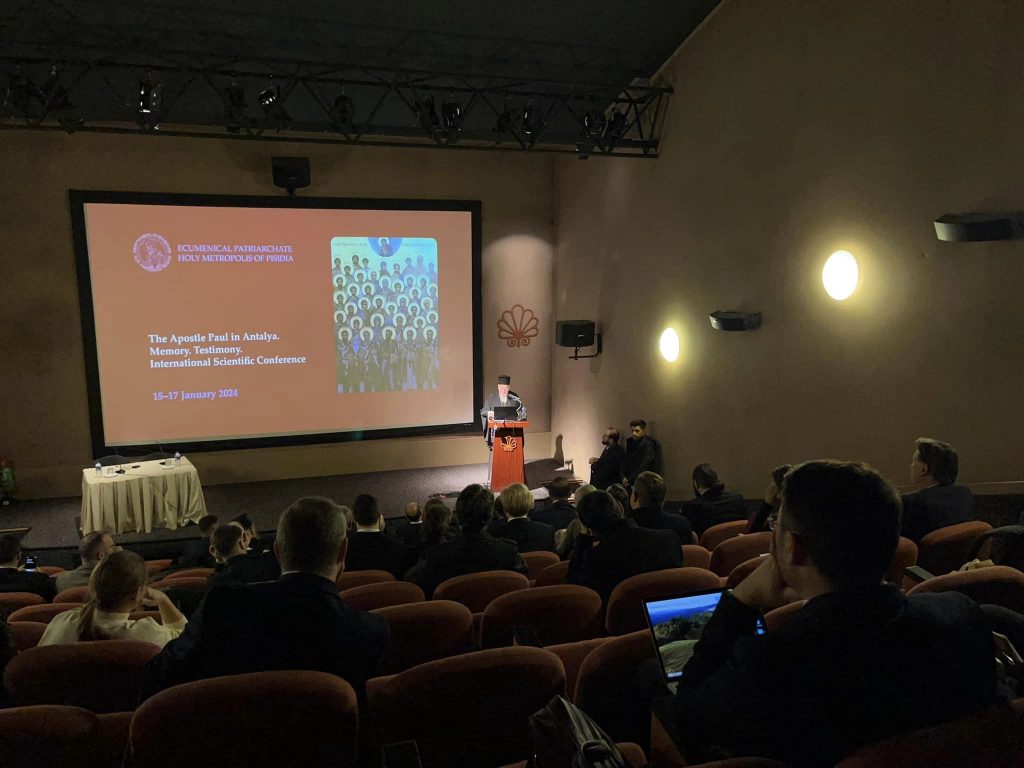
ST. PAUL AND THE ECUMENICITY OF THE GOSPEL – Keynote Address by His All-Holiness Ecumenical Patriarch Bartholomew, Antalya, January 15, 2024
Venerable hierarchs and authorities,
Distinguished organizers and participants,
Beloved guests and friends,
Permit me to open with a passage from Acts, chapter 14:
Then they passed through Pisidia and came to Pamphylia. When they had spoken the word in Perga, they went down to Attalia. From there they sailed to Antioch, where they had been commended to the grace of God for the work which they had fulfilled. And when they arrived, they gathered the church together and declared all that God had done with them, and how he had opened a door of faith to the nations (Acts 14.24–28).
Like the Apostles and like St. Paul, we too have today “gathered the church together and declared . . . how God has opened a door of faith to the nations.” Even as we assemble, we recall our visit here to celebrate the Year of St. Paul. Indeed, in our Encyclical on the Feast of the Nativity (Christmas 2007), we proclaimed 2008 as a year formally dedicated to the memory and ministry of St. Paul.
Thus, following the Synaxis of the Heads of all the Orthodox Churches—which convened at the Phanar (on October 10–12, 2008) and paved the way for the realization of the Holy and Great Council (in June, 2015)—an academic symposium and spiritual pilgrimage traveled from October 11–16, 2008, through cities of Türkiye and Greece where St. Paul preached during his missionary journeys. That itinerate conference opened in Istanbul and proceeded through the historical cities of Smyrna, Ephesus, Perge, and Antalya (in Asia Minor), as well as Lindos and Kaloi Limenes (in Greece), from where St. Paul departed for his trial and martyrdom in Rome.
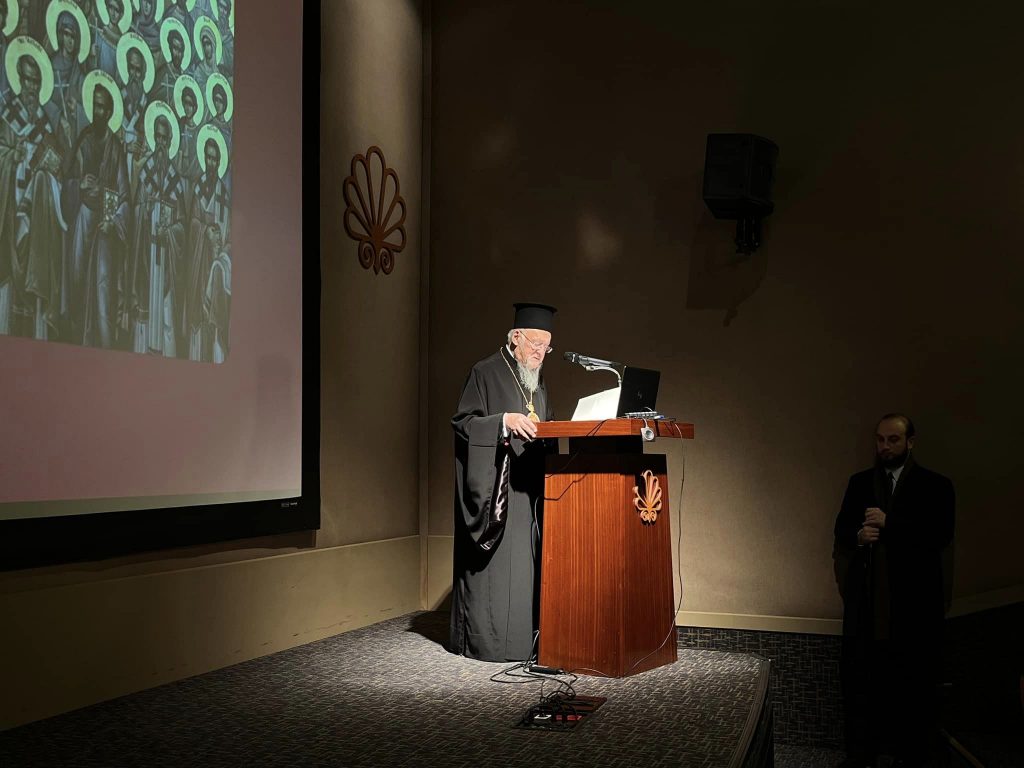
On that occasion, we were accompanied by the Patriarch of Alexandria, the Archbishop of Cyprus, the Archbishop of Athens, the Archbishop of Albania, and the Archbishop of Prague, together with eminent representatives from every Autocephalous and Autonomous Church, including the Patriarchates of Antioch, Jerusalem, Moscow, Serbia, Romania, Bulgaria, and Georgia, as well as the Churches of Poland, Finland, and Estonia. The Roman Catholic Church was represented throughout by personal delegates of Pope Benedict XVI.
Today, we find ourselves once again in Antalya, this time commemorating and celebrating the ecumenicity of the Christian Gospel promulgated by St. Paul to the universe beyond all race and religion, beyond any origin and background, and beyond status and gender alike. There is, of course, no separation or discrimination between the Gospel of salvation and the Gospel to the nations. It is one and the same good news of holiness and wholeness, healing and reconciliation, as well as unity and community intended by Trinitarian God at the moment of creation with the old covenant and incarnated by the Divine Word at the moment of recreation with the new covenant.
Thus, the divine work of creation is fully revealed and properly understood in the context of the event of salvation, through which God visits his creation through his Son. St. Paul revealed the cosmic dimensions of the universality of salvation. He wrestled to discover the language and terminology, with which to convince his audience across the Roman Empire that “salvation is in no one else, for there is no other name under heaven given among men by which we must be saved” (Acts 4.12).
It is for this reason that St. Paul preaches Jesus Christ as God’s Son, in whom, through whom, and for whom everything is created, exists, and subsists. As the firstborn of all creation in “the first Adam” and the firstborn from the dead in “the last Adam” (1 Cor.15.45), Jesus Christ is “pre-eminent” in everything, “for in him all the fullness of God was pleased to dwell, and through him all things are reconciled to himself” (Col 1:.18).
The kerygma of St. Paul expresses and explains the depth and breadth of the dogma of salvation through the cross and resurrection. Nothing could more aptly respond to the needs and challenges of our contemporary world than the ecumenical vision of this Pauline message about embracing and including every human being, to the least of our brothers and sisters (Matt.25.40), as well as every material thing, to the last particle of dust. Moreover, nothing could more accurately reflect the hope and aspiration of the Ecumenical Patriarchate over the last century than its conviction about and commitment to ecumenical relations and dialogue.
In the past, the Church of Constantinople sought to advance a “league” or “council” of communions for the sake of a joint witness of the Body of Christ in a fractured and divided world. It also fought to assemble a “great council” of Orthodox Churches with the objective of dispelling the illusion of a federation of national churches and instead establishing a sense of “one, holy, catholic, and apostolic church,” as we recite in the Nicaean-Constantinopolitan symbol of faith at every Divine Liturgy. We have repeatedly underlined that unity is not merely an internal matter of the Church, precisely because unity is inextricably linked with the unity of all humanity. The Church does not exist for itself but for all humankind and, still more broadly, for the whole of creation.
However, at this critical moment in history, ecumenicity is not a luxury or advantage; it is imperative and indispensable for us as Christians inasmuch as world’s survival depends on an expansive interpretation and extensive application of the Gospel. The ecumenical mandate is essential for the very existence and endurance. We are called to be ecumenical because we cannot otherwise breathe, because we cannot otherwise be!
This means that we cannot claim to be disciples of the crucified and risen Lord until and unless our concern and compassion reach out beyond ourselves and our own interests to everyone made in God’s image and everything fashioned by God’s love. The Gospel can never be exceptionally identified with or exclusively restricted to a single culture or political system. It cannot choose sides on the basis of prejudice or partisanship. It must always break down barriers and instead build up bridges, constantly moving outside stereotypical zones of comfort and complacency.
Therefore, when we pursue inter-Christian relations today—engaging with Roman Catholic, Anglican, Lutheran, and all Protestant believers—we are naturally promoting sacramental unity in accordance with the prayer of our Lord, who desired “that [his disciples] may all be one” (John 17.21), but we are also recognizing that Christians must stand in solidarity with those who are “persecuted for righteousness’ sake . . . and falsely for [Christ’s] sake” (Matt. 5.10–11).
By the same token, when we undertake inter-religious conversations today—engaging with our Jewish, Muslim, and other brothers and sisters—we are clearly fulfilling the commandment to “make disciples of all nations, teaching them to observe what [we] were commanded” (Matt. 28.19–20), but we are also acknowledging that only love—not peace or conflict or violence—can bring peace.
In fact, we could and should take the ecumenicity of the Gospel of Christ and message of Paul one step further. Because in our world, religion is being exploited, manipulated, and instrumentalized for all the wrong reasons, including nationalism, fanaticism, and fundamentalism. We witness this before our eyes in Ukraine, where Orthodox Christianity is unethically and unjustly harnessed against other Orthodox Christians with the blessing of the Moscow Patriarchate. We observe the same violation and vilification in the Middle East and Northern Africa, where hostility and warfare are waged in the name of religion at the expense of civilian life and humanitarian need.
This means that we are all called to adopt a genuinely ecumenical and apostolic perspective with universal and cosmic consequences. We are all invited to imagine our role and responsibility in the world as inclusive and comprehensive, welcoming and embracing our neighbor as ourselves. And we are all called to be more susceptible and flexible in our behavior toward foreigners and strangers, refugees and immigrants, marginalized and outcast. The words of St. Paul to the Corinthians should always resonate in our mind and heart:
For though I am free from all men, I have made myself a slave to all, that I might win the more. To the Jews I became as a Jew, in order to win Jews; to those under the law I became as one under the law . . . that I might win those under the law. To those outside the law I became as one outside the law . . . that I might win those outside the law. To the weak I became weak, that I might win the weak. I have become all things to all men, that I might by all means save some. I do it all for the sake of the gospel, that I may share in its blessings (1 Cor. 9.19–23).
Dear friends,
The ecumenicity of Paul’s preaching is the other side of the same coin that is the ecumenicity of Christ’s Gospel. Just as the “good news” of Christ’s salvation and reconciliation reaches “the end of the earth” (Acts 1.8), the goal of our message and mission should reach out and respond to the call of the poor and the crisis of creation that yearn for restoration and transformation, as well as harmony and integrity.
Such is the context within which we should perceive the ecumenicity of the Gospel as it is comprehended and communicated by St. Paul to the nations. It is the same framework within which we certainly appreciate and apply our ecumenical accountability before members of other confessions, believers of other faiths, and all people of good will in a fractured and antagonistic world that sincerely longs for greater generosity and hospitality.
It is our prayer and hope that this conference may contribute toward such an ecumenical worldview and way of life.
